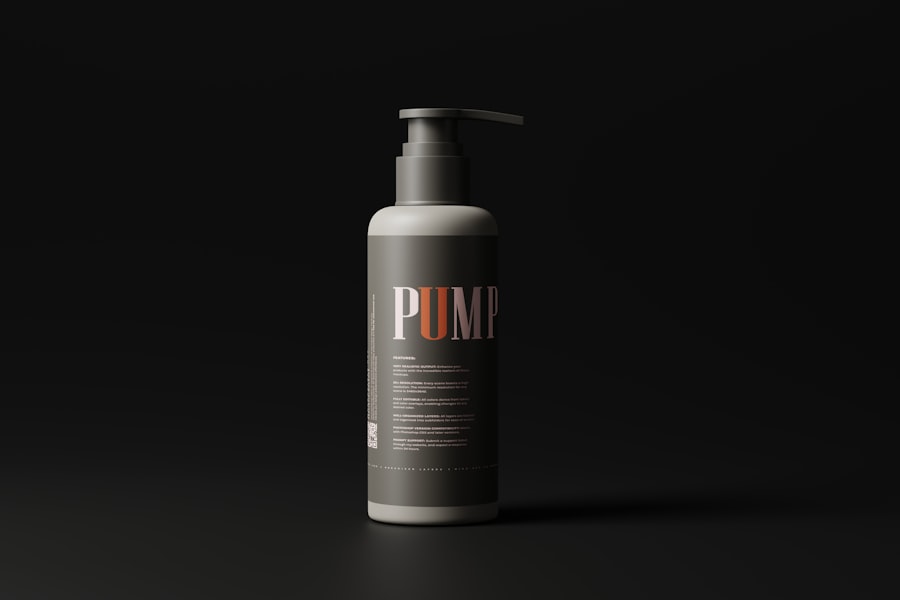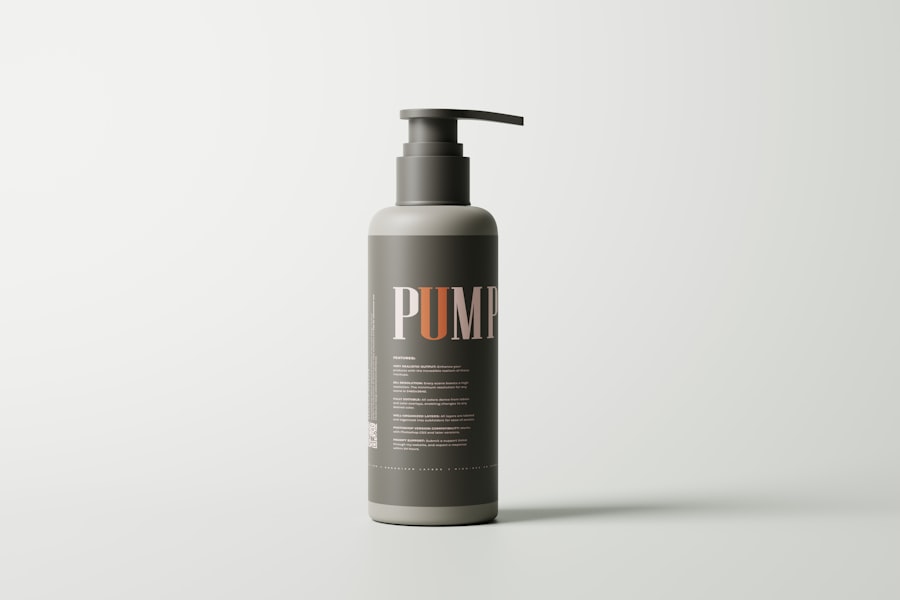After you’ve gone through the process of epilation, whether it’s waxing, tweezing, or using an epilator, the importance of post-epilation care cannot be overstated. Your skin has just undergone a significant procedure that can leave it sensitive and vulnerable to irritation. Proper care following epilation is essential not only for soothing your skin but also for ensuring that you achieve the best possible results.
Neglecting this crucial step can lead to discomfort, redness, and even ingrown hairs, which can mar the smooth finish you worked hard to achieve. Taking the time to care for your skin post-epilation can make a world of difference in how it feels and looks. By implementing a thoughtful aftercare routine, you can help your skin recover more quickly and maintain its health.
This is particularly important if you have sensitive skin or are prone to reactions. The right post-epilation care can enhance your overall experience, allowing you to enjoy the benefits of smooth skin without the accompanying discomfort that can sometimes follow hair removal.
Key Takeaways
- Post-epilation care is crucial for maintaining smooth and healthy skin after hair removal.
- Soothing and hydrating lotions can help to calm and moisturize the skin, reducing redness and irritation.
- Anti-inflammatory creams can be used to reduce swelling and discomfort after hair removal.
- Natural oils such as coconut or jojoba oil can provide deep moisturization for the skin, preventing dryness and flakiness.
- Exfoliating scrubs can help to prevent ingrown hairs by removing dead skin cells and allowing hair to grow freely.
Soothing and Hydrating Lotions
One of the first steps in your post-epilation care routine should be applying a soothing and hydrating lotion. After hair removal, your skin may feel dry or tight, and a good lotion can help restore moisture and comfort. Look for products that contain ingredients like aloe vera, chamomile, or calendula, as these are known for their calming properties.
Applying a hydrating lotion not only helps to alleviate any immediate discomfort but also creates a barrier that protects your skin from environmental irritants. When choosing a lotion, consider opting for one that is fragrance-free and formulated specifically for sensitive skin. This will minimize the risk of further irritation and ensure that your skin receives the gentle care it needs.
You might find that applying the lotion immediately after epilation provides instant relief, making the experience much more pleasant. Regular use of a hydrating lotion in the days following your epilation can also help maintain your skin’s softness and prevent dryness.
Anti-inflammatory Creams

In addition to soothing lotions, incorporating anti-inflammatory creams into your post-epilation routine can be highly beneficial. These creams are designed to reduce redness and swelling, which are common reactions after hair removal. Ingredients such as hydrocortisone or witch hazel can be particularly effective in calming inflamed skin.
By applying an anti-inflammatory cream, you can help speed up the healing process and minimize any discomfort you may experience. It’s important to apply these creams sparingly and only on areas that show signs of irritation. Overuse can lead to further complications or sensitivity.
You might find that using an anti-inflammatory cream in conjunction with a hydrating lotion provides a comprehensive approach to post-epilation care. This combination can help ensure that your skin remains calm and comfortable while also promoting healing.
Natural Oils for Moisturizing
| Oil Type | Moisturizing Properties | Suitable for Skin Type |
|---|---|---|
| Coconut Oil | Deeply moisturizes and softens the skin | Normal to dry skin |
| Argan Oil | Rich in vitamin E, hydrates and nourishes the skin | All skin types, especially dry and sensitive skin |
| Jojoba Oil | Lightweight and non-greasy, balances skin’s natural oils | Acne-prone and oily skin |
| Almond Oil | Softens and soothes the skin, improves complexion | All skin types, especially dry and sensitive skin |
Natural oils can be a fantastic addition to your post-epilation skincare routine. Oils such as coconut oil, jojoba oil, or argan oil are excellent for moisturizing and nourishing the skin. They penetrate deeply, providing hydration while also forming a protective barrier on the skin’s surface.
This is particularly beneficial after epilation when your skin may be more susceptible to dryness and irritation. Using natural oils not only helps to keep your skin moisturized but also offers additional benefits such as anti-inflammatory properties and antioxidants. For instance, coconut oil has antimicrobial properties that can help prevent infections in freshly epilated skin.
You might consider massaging a few drops of your chosen oil into the affected areas after applying your soothing lotion or anti-inflammatory cream. This layered approach can enhance hydration and promote overall skin health.
Exfoliating Scrubs for Ingrown Hairs
Ingrown hairs are a common concern following hair removal, and incorporating exfoliating scrubs into your post-epilation routine can help prevent them from occurring. Exfoliation works by removing dead skin cells that can clog hair follicles, allowing hair to grow freely without becoming trapped beneath the surface. Look for gentle scrubs that contain natural exfoliants like sugar or oatmeal, as these are less likely to irritate sensitive skin.
You should aim to exfoliate your skin about two to three times a week after epilation, depending on your skin type and sensitivity levels. Be cautious not to over-exfoliate, as this can lead to further irritation or damage. A well-timed exfoliation session can help keep your skin smooth and free from ingrown hairs while also enhancing its overall texture and appearance.
Aloe Vera Gel for Calming Irritated Skin

Aloe vera gel is often hailed as a miracle worker for irritated skin, making it an excellent choice for post-epilation care. Known for its soothing properties, aloe vera can help calm redness and inflammation while providing hydration. Applying aloe vera gel directly onto freshly epilated skin can offer immediate relief from discomfort and promote healing.
In addition to its soothing effects, aloe vera is rich in vitamins and antioxidants that nourish the skin. You might find that using pure aloe vera gel—either straight from the plant or in a high-quality product—can significantly improve your post-epilation experience. Consider keeping a tube of aloe vera gel handy for those moments when your skin needs extra care; it’s a versatile product that can be used not just after hair removal but also for sunburns or minor cuts.
Sunscreen for Protection
After epilation, your skin may be more sensitive to sunlight, making sunscreen an essential part of your post-care routine. Applying a broad-spectrum sunscreen with at least SPF 30 can protect your freshly treated skin from harmful UV rays that could lead to irritation or pigmentation issues. It’s crucial to apply sunscreen generously on any exposed areas before heading outdoors, especially within the first few days following hair removal.
In addition to protecting against sunburn, sunscreen helps prevent long-term damage such as premature aging or dark spots. You might consider using a sunscreen specifically formulated for sensitive skin to ensure it won’t cause further irritation. Remember to reapply every two hours if you’re spending extended periods outside; this will help maintain protection and keep your skin looking its best.
Tips for Preventing Ingrown Hairs
Preventing ingrown hairs is an important aspect of post-epilation care that deserves attention. One effective strategy is to ensure that you’re using the right hair removal technique for your hair type and skin sensitivity. For instance, if you have coarse hair or sensitive skin, you might find that waxing or using an epilator leads to more ingrown hairs than shaving would.
Understanding your unique needs can help you choose the best method for hair removal. In addition to selecting the right technique, maintaining proper hygiene is crucial in preventing ingrown hairs. Always ensure that your tools are clean before use, and consider exfoliating regularly to keep dead skin cells at bay.
Wearing loose-fitting clothing after epilation can also reduce friction on the skin, minimizing the chances of hairs becoming trapped beneath the surface. By combining these practices with effective post-epilation care products, you can significantly reduce the likelihood of experiencing ingrown hairs in the future. In conclusion, taking care of your skin after epilation is vital for achieving smooth results while minimizing discomfort and potential complications like ingrown hairs.
By incorporating soothing lotions, anti-inflammatory creams, natural oils, exfoliating scrubs, aloe vera gel, sunscreen, and preventive measures into your routine, you can ensure that your skin remains healthy and radiant long after hair removal. Prioritizing post-epilation care not only enhances your overall experience but also promotes lasting beauty and confidence in your skin.
After epilating, it is important to take care of your skin to prevent irritation and ingrown hairs. One helpful article on this topic can be found on the In Laser Hair Removal blog. This article provides tips on what products to use on your skin after epilating to keep it smooth and healthy. Additionally, you can check out their



